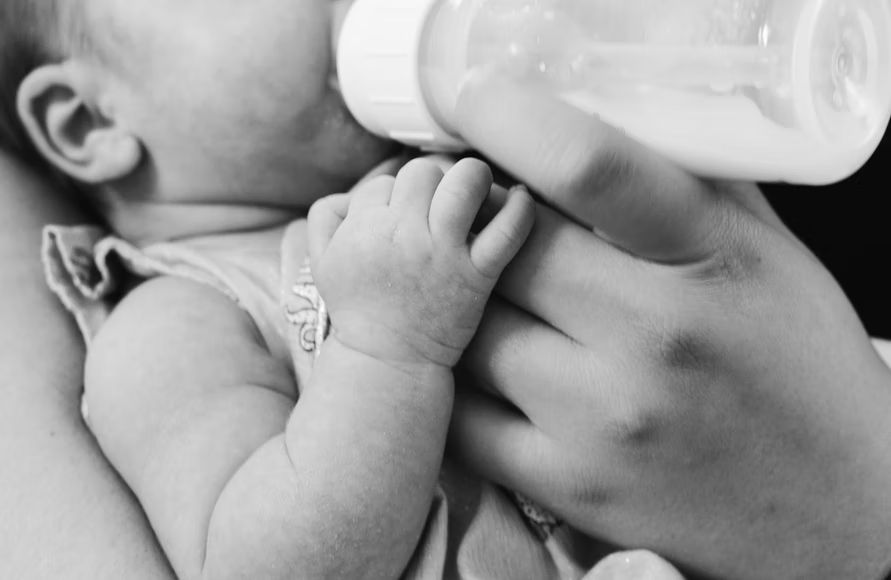For months, shops throughout the country have struggled to keep adequate infant formula on hand. Manufacturers claim to be operating at full capacity and manufacturing as much formula as possible, yet this is insufficient to meet present demand.
In the first half of 2021, the out-of-stock rate for baby formula ranged between 2% and 8%, but it began to rise dramatically in July. According to Datasembly data, the out-of-stock rate increased to 31% between November 2021 and early April 2022.
Also read: US midterm election 2022: What to expect in Nebraska, West Virginia primaries
According to the figures, that rate jumped by 9 percentage points in just three weeks in April, and it now stands at 40%. During the week beginning April 24, more than half of baby formula was totally sold out in six states: Iowa, South Dakota, North Dakota, Missouri, Texas, and Tennessee, according to Datasembly.
Although seven states reported 40-50 percent of baby formula items out of stock as of early April, 26 states are presently experiencing supply issues.
“This issue has been compounded by supply chain issues, product recalls and historic inflation,” Ben Reich, CEO of Datasembly, stated. “Unfortunately, given the unprecedented amount of volatility to the category, we anticipate baby formula to continue to be one of the most affected products in the market.”
CVS and Walgreens have verified that customers will be limited to three toddler and baby formulas per transaction nationwide. “We continue to work diligently with our supplier partners to best meet customer demands,” Walgreens told CNN Business.
Also read: Wrong. Lie. Fake News. No comment: Donald Trump on Mark Esper’s revelations
A Target spokesperson confirmed that the business has limited online orders of infant formula to four units per customer. According to the corporation, there is no restriction on the number of units that can be purchased in person at Target stores.
Customers uploaded photographs on social media of Walmart imposing similar restrictions on baby formula purchases, while Walmart did not confirm if the regulation was nationwide. Images obtained by CNN Business show empty shelves where infant formula should be, as well as a sign stating that just five units were permitted per purchaser.
The Food and Drug Administration’s closure of an Abbott Nutrition factory in Sturgis, Michigan, has exacerbated the shortfall. Abbott is a leading manufacturer of infant formula.
The US Food and Drug Administration recalled three types of the company’s powdered baby formulae in February owing to potential bacterial illnesses, including Salmonella. The FDA recommended parents not purchase or use certain batches of Similac, Alimentum, and EleCare powdered infant formulae, all manufactured by Abbott.
Also read: LGBTQ dating app Grindr to go public: All you need to know
A former Abbott Nutrition employee filed a whistleblower complaint with the FDA months before the recall, detailing their worries that the business was concealing safety issues at its Sturgis, Michigan, plant. The formulae made at the plant were recalled after four infants who consumed them became ill with uncommon diseases caused by the Cronobacter sakazakii bacteria. According to the complaint, two infants perished.
Abbott stated that the former employee was fired due to “serious violations of Abbott’s food safety policies,” and that the company will look into fresh charges.
“After dismissal, the former employee, through their attorney, has made evolving, new and escalating allegations to multiple authorities,” in a statement, an Abbott spokesperson said.
According to the Abbott spokesperson, all goods tested for Cronobacter sakazakii and Salmonella were negative, and no Salmonella was identified at the Sturgis site throughout the investigation.
Also read: The big short: Is Elon Musk going to renegotiate Twitter deal?
“The Cronobacter sakazakii that was found in environmental testing during the investigation was in non-product contact areas of our Sturgis facility and has not been linked to the two available patient samples or any other known infant illness,” the spokesperson added.
Finding normal formula has become challenging for parents, several of whom have recalled going to unusual lengths to obtain even a single can or bottle. Due to the widespread scarcity, specialised formula is much more difficult to find. Parents are travelling to other states to try their luck, and many are begging for assistance on social media, pleading with strangers to share or even barter any spare supplies they may have.
In a statement released Saturday, Abbott said it is working closely with the FDA to reopen its Michigan plant.
“We continue to make progress on corrective actions and will be implementing additional actions as we work toward addressing items related to the recent recall. In the meantime, we are working to increase the supply of infant formula by prioritizing infant formula production at our facilities that provide product to the US market,” Abbott told CNN Business in a statement.







